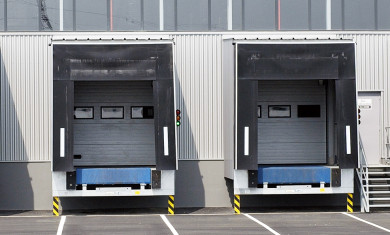What is an 'Open Book' Contract?
The attractions of 'Open Book' Agreements are easy to understand. The contractor is assured of recovering the costs of the resources it supplies and the customer pays only for the resources used, plus an agreed management fee.
'Open Book' Agreements
Contract renewal or managing change should, in theory, be relatively simple given that the commercial negotiation should be limited to the size of the management fee. Unfortunately, transparency of costs does not always guarantee value for money. Simply knowing how supply chain costs are made up does not necessarily mean that that they will be minimised.
Effective cost management means having the right solution and managing both unit costs and productivity. Simply auditing the contractor to ensure that the costs being passed on have been incurred does not address the issue of what are realistic unit costs, what is a reasonable level of productivity or does the operation represent the most efficient solution.
'Open Book' Contract Management
It is not unusual, as a result of the initial tender process, for operations to start off well managed only to become less efficient as either complacency sets in or pressure comes off once the performance of the operation is no longer in the spotlight. Other than winning the next contract renewal, which could be years away, few contractors have an incentive to minimise costs.
Some organisations attempt to reconcile the interests of the contractor with their own through incentive or gain share schemes, but most fail due to the difficulty of isolating the cost variables for which the contractor will accept sole responsibility.
Adding to the problem of ensuring effective management of the operation has been the trend, in recent years, for customers to seek to minimise management fees in response to the recent economic challenges, which have seen margins under pressure. While easy to understand the reasons for reducing fees, it can often be counterproductive if it results in less effective contract management. A saving in the management fee can quickly be lost if the result is less effective operational management or failure to respond to the changing needs of the customer. It is far better for the customer if the contractor takes 2% from the operating costs than 10% from the management fee.
How to Avoid the pitfalls
The first key principal is to recognise that no organisation can absolve themselves from monitoring and managing a logistics operation because it has been outsourced. Irrespective of the performance and integrity of the contractor's management team, many cost savings are achieved by optimising activities across several functional areas.
Improved delivery frequency may increase distribution costs but improve sales. The use of dedicated vehicles could again increase distribution costs, but may reduce packing costs and product damage. A detailed grasp of supply chain costs is essential for managing them and for ensuring the optimisation of the total operation. There is a saying that you only get out of life what you put in and this is certainly true with regards the management of 'Open Book' contracts.
So how do you manage an 'Open Book' agreement?
THE IMMEDIATE REQUIREMENT is to put in place an effective reporting system. In addition to reporting on costs, a suite of key ratios and KPIs should be developed to effectively monitor the key efficiency and productivity drivers that determine the resources required. Typically, what drives excessive cost is the resources used; not their individual costs, which are usually set by the market. Reporting of the key variables should be weekly or, at the most, monthly.
SECONDLY, contractors should demonstrate that they themselves are regularly market testing the prices charged by their suppliers. This could include assets, consumables and services provided by other organisations.
THIRDLY, depending on the rate of change of your organisation's operational needs, the contractor's operational team should regularly review the operational methodology to include such questions as:
- Is the warehouse layout correct?
- Do we still have the optimum mix and resource level of MHE?
- Are there changes in IT that could improve productivity?
- Do we have the optimum mix of delivery service providers?
- Do we have the optimum mix and resource level of dedicated trucks?
FOURTHLY, it is essential that at least once per year, there is a full strategic review of the operation to consider the future needs of the business. Typically, this will consider new product development, new customer segments and any new routes to market and will involve a fundamental review of the future resources and services required.
Clearly, whilst weekly reporting and tactical planning can be carried out by the contractor's local operational team, more detailed and strategic planning will require the support of specialist planners and project managers. It should be clear within the contractual agreement what level of support the client can expect from the contractor. Is the level of support included within the management fee or will it be provided at an extra cost. This is particularly the case today when, following pressure to reduce management fees, most contractors have reduced the size of their central support teams expecting the local line managers to provide the service, often with mixed results. Undertaking a detailed operational view requires time, a suite of planning tools and a particular expertise, which most local operational teams do not possess.
FINALLY, no matter how professional or responsive your contractor, nothing tests the suitability and competitiveness of an operation like subjecting it to a tender process. Intense scrutiny by competing organisations is a sure way to test whether the current operational solution is the most appropriate and whether current productivities and unit costs are the most competitive. A tender process also provides the opportunity to 'reset the clock' with regards to how the operation is to be managed. This could include looking again at the reporting and planning support provided by the contractor.
Please call us on 01327 349090 to discuss your company's requirements or contact us.
Featured Outsourcing Case Studies
Logistics Contractor Performance Management
To improve the performance and operational management of an incumbent logistics contractor, please visit our specialist Logistics Interim & Project Management division.



